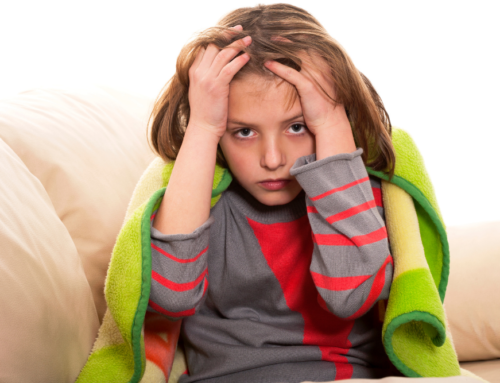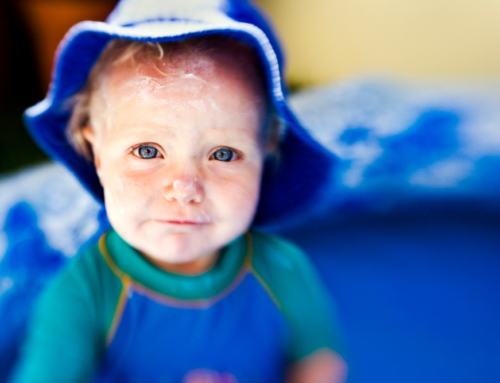
Bronchiolitis is a lung infection that is caused by the respiratory syncytial virus (RSV). It is common in children under two years of age. The illness starts in the upper respiratory tract but then moves to the lower respiratory tract. The initial symptoms of bronchiolitis are similar to those of a cold, including a stuffy or runny nose, mild cough and fever.
As the illness progresses, the cough typically worsens and becomes more persistent. In many cases, breathing becomes more difficult and the child may start to wheeze. For that reason, bronchiolitis is sometimes known as “asthmatic bronchitis” or “wheezy bronchitis.” Needless to say, the sound of a young child wheezing and laboring to breathe is disconcerting to parents and brings up many questions at our North Denver pediatrics clinic.
What Causes Bronchiolitis?
Bronchiolitis can be caused by many types of respiratory viruses, but often RSV is the culprit. Winter and spring are common times of year for children to develop the illness. The virus is spread through secretions (i.e., respiratory mucus) from an infected person, and can be easily transmitted in group settings such as day care.
If an infected child sneezes or touches their mouth and then a toy, virus particles can be picked up by another child that touches that object and then rubs their eyes or puts their fingers in their mouth. While an infected child may display symptoms, in some cases they do not. Consequently, it is difficult to keep “well” children and “sick” children apart.
Are There Risk Factors for Bronchiolitis?
Children may be more likely to develop bronchiolitis, or to develop a more severe case, if any of these risk factors are present:
- They were born prematurely
- They were not breastfed and don’t have the added immunity breastfeeding provides
- They are under 3 months of age
- They are exposed to groups such as in a daycare setting
- They have school-age siblings who may expose them to viruses
- They have an underlying lung condition
- They are regularly exposed to tobacco smoke
Can Bronchiolitis be Prevented?
There currently is no effective way to prevent bronchiolitis. Good hygiene practices in the home for all family members can help limit the spread of RSV and other viruses. This includes frequent, thorough hand washing, sneezing into the bend of the elbow, avoiding contact with those who are ill, not sharing food or beverages, etc. However, it is virtually impossible to prevent every possible exposure to viruses.
For children who are at especially high risk of severe infections from RSV, there is a product that has an antibody that may minimize the chances of developing an infection. It is administered as a monthly intramuscular injection.
How is Bronchiolitis Treated?
Bronchiolitis cannot be cured. However, there are steps you can take to alleviate a child’s symptoms and make them more comfortable. For example, your doctor may prescribe medication or direct you to use over-the-counter medication to reduce a fever. Your doctor may also recommend nasal saline drops, nasal suctioning and a cold water humidifier to help your child breathe more freely.
You should ensure that your child gets adequate fluid to avoid dehydration. They should also eat healthy meals if they have an appetite, but food is less important than fluids.
A North Denver Pediatrics Practice that Knows Bronchiolitis
At Mountainland Pediatrics, a leading North Denver pediatrics practice, we understand that having a child with bronchiolitis can be stressful. We help parents understand the illness and get their children through it with as little discomfort as possible. If you have questions about your child’s health or our services, please contact us (303) 430-0823.



